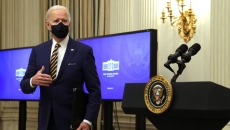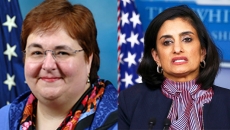Government & Policy
Reports suggest that President Joe Biden is likely to tap three Obama-era officials for key cyber positions as the government continues to respond to the SolarWinds hack and other high-profile threats.
eMocha CEO Sebastian Seiguer joins us to look ahead at the Biden administration and discuss what needs to happen next for telehealth.
From this month hospitals can apply for government funding under the Hospital Future Act.
This week's top stories include Biden announcing health-related appointees and nominees, including appointing Jeffrey Zients as head of the White House's COVID-19 response team and Micky Tripathi as head of National Coordinator for Health IT.
The strategy includes a proposed executive order that will direct federal agencies to ramp up collection, sharing and analysis of data to "support an equitable COVID-19 response and recovery."
The move is the first sign of future healthcare policy changes, given Biden's promises to reform the industry.
The changes herald a major overhaul for agencies struggling to respond to the COVID-19 crisis.
As National Coordinator for Health IT, the interoperability veteran will bring deep standards expertise as the rubber hits the road on nationwide API-based data exchange.
Vaccines by six developers – Sinopharm, Sinovac, Pfizer-BioNTech, Moderna, Oxford-AstraZeneca, and Sputnik V (Gamaleya Research Institute) – are the ones doing the rounds in the region. Here’s what’s known about them.
There are four main types of vaccines currently approved, in approval or being considered in the MENA region in its fight against COVID-19. We bring you a summary of just what they are, how they differ, along with the advantages and disadvantages of each type.









